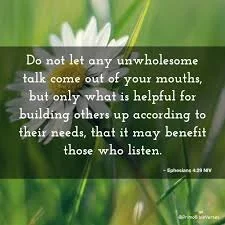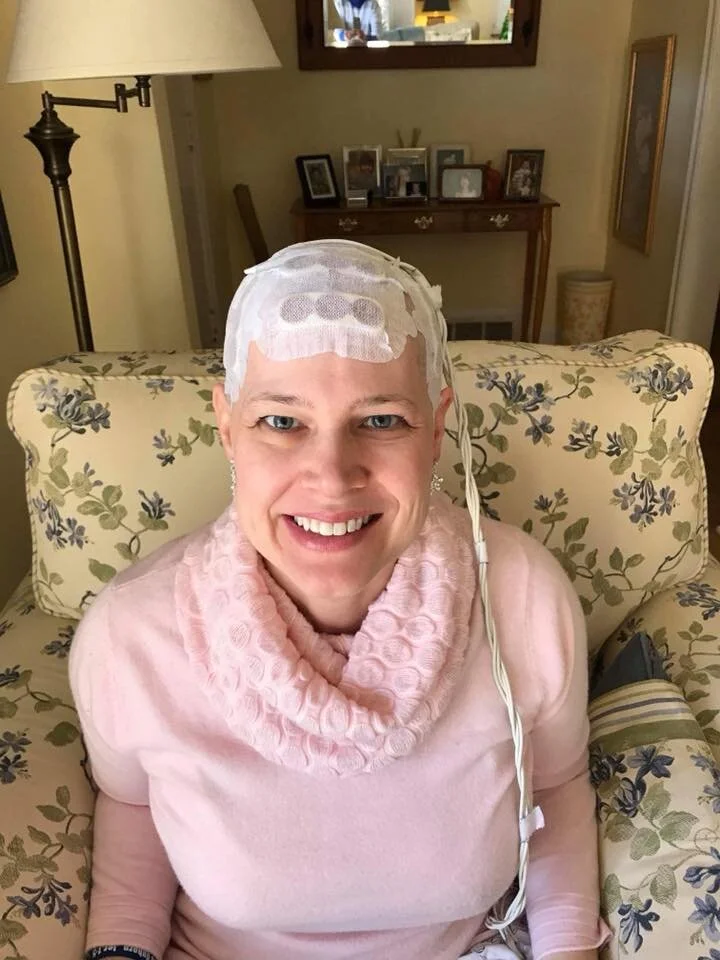Preface: My Story
This is a story about suffering. It is also story about miracles. It’s a story about anger, love, sorrow, joy, stumbling, and faith. Ultimately, it is a story of victory. This is my story—one I share with many others. If you are reading this, it may be similar to your story too—at least parts of it. From the beginning, I must say that I do not presume you and I have the exact same story, but I am acutely aware that we may have walked a similar path. Of course, part of being human is to suffer and undergo tribulation at points in our life. I fail to think of a single individual who has escaped this reality. How do we, as humans, get through the hard, even excoriating, events of life? The death of a child…divorce…broken relationships…terminal cancer…fill-in-your-blank.
As I write this, I am a women in my 30s who has experienced all the above. When I was 24, I lost an infant nephew to a undetected heart conduction; around that same time, I was rejected by certain family members that I loved dearly; I was divorced at age 28; suffered through my parents’ divorce at age 30, and soon after I turned 36, I was diagnosed with Grade 4 Glioblastoma Multiforme, a terminal cancer. I have buried a beloved child, fought to forgive, felt the devastating disaster of divorce (mine and my parents), and courageously conquered terminal cancer.
I write this not to complain, and not even to understand, but to share in hopes that it may provide comfort and hope to others—and there is comfort and hope. I know there are people who have gone through much worse; I have met many of those people. Again, I seek not to compare nor to provide explanation, but to sympathize. I hope you will keep reading as I tell you my story.
I was 19 years old and at home from my freshman year in college for a long weekend. I had been talked into attending a Christian spiritual retreat called “Walk to Emmaus.” I didn’t want to be there. My four-day weekend home was limited and already cut short by the two days required of me to travel to my college in Fulton, Missouri. I had followed Christ since being a very young girl, having accepted Jesus as my personal Lord and Savior at a Baptist Church in Ada, Oklahoma. I didn’t see much purpose in me attending a spiritual retreat.
After the mid-1980’s oil bust, my family moved from Ada to Amarillo, TX. I was five years old, and conveniently in between preschool and kindergarten. My dad had accepted a position as a sales representative for company that has now been bought and sold many times. My dad remained with them through each transition for over 35 years. My mother quickly found her perfect niche as the Executive Director of a small pregnancy center ministry that would soon grow, under her leadership, to one of the most successful pregnancy ministry operations in the region, the Care Net Pregnancy Centers of Amarillo. She would eventually be recruited by the National Leadership of Care Net, which would move my parents to the Washington, D.C. area in the early 2000s.
Amarillo, population 120,000 back then, was a dusty conservative city, with a small-town feel, in the middle of the Texas Panhandle. I would describe Amarillo as being, literally in the middle of nowhere. Lubbock, the closest city of comparable size, was a decent two-hour drive away. Oklahoma City was four hours in another direction. Further still, you could be in Colorado Springs, two states away, in 6 hours, which ironically was about the same amount time to drive to the Dallas metroplex within our own state.
As for Amarillo’s social climate, envision a Western-motley mixture of cowboys (“kickers”), zealous “religious-righters,” apathetic “new money,” the upper-middle class families that resembled a western version of the Northern Virginia suburbia I would experience later in my life, “old money”—decedents of the oil barons and cattle ranchers who had settled the panhandle in the early 1900s. On the fringes were the punks, grunges, and rockers. While I had friends, or at least close acquaintances, in most of the social groups, I had a unique problem growing up in Amarillo. I didn’t seem to fully fit squarely into any single group. Looking back, I find this to have been more positive than negative. It forced me to develop a firm yet independent self-identity.
Everyone in Amarillo had one thing in common. Regardless of your background, social status or cultural preferences, everyone found themselves in church on Sunday morning. The churches were plentiful and of wide variety—large, small; traditional, unconventional; Baptist, Methodist, Lutheran, Presbyterian, Episcopalian, Non-denominational, Catholic, Pentecostal, Charismatic and everything in between. Even those “Cowboy Kickers” had a church devoted to them called “Cowboy Church,” as was prominently displayed on its sign. Of course, with any decent sized city, Amarillo was rounded out with a Synagogue and a Mosque. Amarillo was full of churches of such shapes and sizes that anyone could find one suitable to his/her religious, cultural and social preference.
As an adolescent and young adult, I was very much a work hard, play hard, and nap hard person. Anxious to take advantage of every opportunity, I engrossed myself in so many extra-curricular activities that a college recruiter who called one evening remarked that she was shocked to find me at home. She wasn’t too far off. I was an A student with multiple honors classes under my belt, played Trombone in the marching band for two years (always in second or first chair), a member of the National Honor Society, the Treasurer of Amarillo High School’s computer club, winner of an art competition, and I even unsuccessfully attempted to persuade the theater director to cast me as the Plant in our high school production of “Little Shop of Horrors.” On community affairs, I was no slouch either. I advocated before the City Counsel against imposing an unconstitutional curfew on Amarillo teenagers, participated annually in the local March for Life, volunteered at my mom’s pregnancy center, and hobnobbed beyond my years with Congressmen, local religious leaders, businessmen and the like.
All these activities paled in comparison to the joy and success I experienced in Speech and Debate. I spent weekends upon weekends at competitions. During weeknights, I poured over research and read the works of philosophers to perfect my arguments. My efforts did not fail me. I quickly developed a reputation of being one of the best Lincoln-Douglas debaters in Texas. My sophomore year, I placed in the top 16 Lincoln-Douglas debaters in Texas. My junior year, I placed 11th in the nation for Student Congress. My senior year I placed fifth in Texas in Extemporaneous Speaking, and represented my region at the national tournament in both Extemporaneous Speaking and Lincoln-Douglas debate. And, being a dutiful Christian, I seldom missed Wednesday night youth group or a Sunday morning church service.
Notably absent from my laundry list of activities was anything sports related. This seemed unusual given my pedigree. My dad, a towering 6 foot 5 inch strong man, had played basketball and football for Wichita State University on a full-ride scholarship. My Achilles heel was my health. Since age six I had suffered from debilitating migraine headaches. These were not just headaches. The migraines caused me to loose my vision, vomit and suffer in excruciating pain. It would often take days for me to recover. Migraines would continue to plague my younger adulthood, in varying degrees of severity, until I underwent surgery for a Grade 4 Glioblastoma Multiforme brain tumor at age 36.
At age 8, I was diagnosed with mononucleosis, only to be diagnosed again at age 11. My doctor explained that, despite conventional understanding, a person could get the disease twice so long as it was two different strains. All in all, these ailments wiped out my immunities and I seemed to catch every virus, cold, and flu imaginable. As much as I tried, I simply could not make it to class everyday. The spirit was willing but the body was not. Nonetheless, I always kept up with my activities and grades, all while dealing with multiple doctor visits, and unsympathetic and sometime cruel teachers and classmates.
I was bullied frequently by students who would mock me saying things like, “Why did you miss school yesterday; did you stub your toe?” followed by barrels of laughs by the other students. Little did they care to know that the day before my head had been pounding, and I could not stand without vomiting. Teachers were often on-lookers and just as bad. More than once I was publicly ridiculed in front of class by teachers for missing class. Even a letter from my infectious disease doctor did not seem to lessen the harassment. One time I was even called before both the principal and vice-principal of my Middle School and questioned about my personal health issues without my parents’ presence, knowledge or consent. I had often fanaticized that they could step into my body for just a small period of time to experience just how bad I truly felt. As for emotions, I tended to be a “stuffer.” Instead of sharing, I stuffed my troubles inside, and I rarely complained. I came to learn later that being a “stuffer” is one of the worst things for your health and may have contributed to my health issues later in life.
I didn’t know it then, but my health would continue to haunt me into my adulthood. Shortly before starting college, I was diagnosed with a tachycardia condition. A cardiologist even recommended I travel to Dallas for a heart surgery. I declined, and I would eventually grow out of the tachycardia. Still, among my books, clothes and other belongings, I left for Westminster College in 1998 with a bottle of heart medication I was to take everyday.
College was a much better experience for me. The Westminster College in Fulton, Missouri had awarded me the “Winston Churchill Scholarship,” named after the lager-then-life leader who had guided his island-nation through World War II and later warned of the impending spread of Totalitarian Communism in his 1946 “Iron Curtain” speech, delivered on the small Missouri campus of my Alma Mater. The Churchill Scholarship covered my tuition for four years. I had received other scholarships, which helped cover my room and board. All in all, I believe my family spent $3,000 on expenses during my four years at Westminster.
Ultimately, I would be just as successful at Westminster as I had been in high school. I graduated with a perfect straight ‘A’ average and a slue of extra-curricular activities, including a semester abroad at the University of Sunderland in the United Kingdom. My grades, activities, combined with an impressive LSAT score landed me acceptance into Harvard Law School. Much to the chagrin of some of my professors, I turned down Harvard in favor of a $30,000 a year scholarship to Boston University School of Law, although not Ivy League, still a Tier 1 law school.
When I was back home for a weekend break my Freshman year, I felt confident in my relationship with Christ and secure in my future. I didn’t see why I should be wasting my precious time at this event called “Walk to Emmaus.” I was plotting my escape. I had determined that I would fake an illness and have my parents return me to the familiarity of my house and family. But, my efforts were futile. The Emmaus people had an ample supply of over the counter medication. Besides, they were nice, the food was good, and I wasn’t a quitter. I stuck it out. During certain times in the event, a person would stand up and give a testimony of some great work God had done in their lives, always following something horrible they had experienced—abuse, broken relationships, death of a loved one, illness, the list went on and on. It seemed one by one the attendees, who were all young women around my age, were connecting with someone who had a similar life experience. I could not relate. My health issues aside, the most pain event in my life had been losing my dog Misha to old age when I was 15. I had a loving family, successful life, good friends, and blessings upon blessings; even all four of my grandparents were still alive. Toward the end of the retreat, the woman who led worship announced that she had loved Christ since her childhood and had never had anything tragic happen to her—that was the person I could relate to, that was the testimony I wanted.
Today, I still believe it’s a beautiful testimony and one I want for my nieces and nephews. But for me it wasn’t meant to be. Starting with the tragic death of my baby nephew Elijah when I was 24, I have experienced broken relationships, divorce, my parents’ divorce, difficult co-workers, and multiple health issues culminating the diagnosis of a deadly form of brain cancer at age 36, a cancer that leaves so few survivors that statistics are hard to come by.
About a month following my graduation from Westminster, I married by college sweetheart. For the sake of anonymity, I shall refer to him as “Matt.” Matt had already taken up residence in Boston attending another law school. I was madly in love with Matt and annoyed many friends and colleagues with my constant talking about him. Matt graduated after my first year of law school and found work as a prosecutor in New Hampshire (where his parents lived). I accepted a position as a “summer associate” in a large law firm in Manchester, New Hampshire during the summer following my second year.
The previous Christmas, my brother and his wife had surprised our family during our Christmas Eve dinner in Washington, D.C. with the news that they were pregnant! For a family that had dedicated its whole life to saving women and unborn children from the destruction of abortion, this was quite exciting news. I remember seeing Elijah’s sweet sonogram picture that Christmas Eve. When I went to pick up Matt from the airport that night, I purchased a stuffed Winnie-the-Pooh Bear to put under the Christmas tree for Christmas morning, simply saying “To Elijah, From Santa.” After all, Elijah was already part of our family. I spend a good deal of the time from then on dreaming of future Christmas mornings and the excitement of having a small child in our family once again. I was determined to be the best aunt I could be.
In early July, I received the long awaited phone call from my brother. Elijah Sun Dixon had arrived. I could hear my nephew’s cries in the background. I told my brother to send pictures as soon as he was able. About half an hour later, I received another phone call. Before, I could start with conversation, my mother said, “Jeanneane, something’s wrong.” When I inquired more, the response was “just pray.” It was late into the evening but I stayed up, called on my friends to pray and remained on my knees until early the next morning. At 5:00am, my father called and simply said, “We lost him.” Those three words irreversibly changed my life. I would later learn Elijah had been the victim of a congenital heart defect. While the condition was operable, little Elijah was not well enough to make the helicopter ride to the Children’s Hospital in Dallas. Fifteen years later, I still grieve.
The funeral weekend in Amarillo was nothing short of grueling—emotionally, mentally and physically. For a week, I lived on about 2 hours of sleep every night. My days were spent consoling my family, helping plan an infant’s funeral, driving extended family around, and removing reminders of the tragedy. The most painful memory occurred when I accompanied my brother and sister-in-law to the funeral parlor to see the baby. The director brought Elijah out, wrapped in a blanket and placed him in his mother’s arms, as streams of tears ran down her face. I stepped out of the room, to give them some privacy, and I could hear my brother wailing, “My son. My son.” I was a mess, but trying to “keep it together” for my family. I pledged that I would give my nephew the best funeral I could, since that would be the only thing I could ever do for him. During the viewing, I took some time to talk with Elijah. I told him that I wanted to do so much more for him, all I could do now is help his family, and that I was excited to be reunited with him in heaven someday.
It is true that Satan likes to kick you when you are down. My dreams of giving Elijah the best funeral possible were fraught with difficulty. Certain members of my extended family protested every decision from who was selected to ride in the limousines to our request that only adults be allowed into the viewing. Significant misunderstandings would result in four of my extended family members missing the burial service and verbal altercations during the post-funeral reception. Regrettably, within days of returning to New Hampshire, a hostile phone call would result in me being disconnected from one side of my extended family for years. For a 24-year-old whose worst experience at that point was loosing a pet, this was just too much for me to handle. Still, I plugged on, stuffing my emotions inside and confiding in no one. I finished off my summer clerkship, and started my third year of law school as accomplished as ever.
But beneath the surface, I was struggling more than anyone knew. Eventually, I would stop going to classes where attendance was not mandatory. My grades would suffer, but by God’s grace I would still graduate cum laude with the cut off point being my exact GPA to the one hundredth place! For the most part, Matt was supportive during this time, but he could understand why I was grieving so hard. Matt simply could not grasp the tragedy of what happened to my family. Nonetheless, our marriage seemed stable. For the next three years, we rarely fought, went to church and small group every week, had date nights, and made plans for the future.
Soon after graduating law school and taking the New Hampshire Bar exam, I started practicing law as an associate attorney in commercial litigation in the same law firm where I had clerked the summer before. Things seemed to be going great. I enjoyed my work (and of course getting a paycheck). I started to make friends, had a wonderful small group, and in classic Jeanneane style, took up several volunteer positions within my church and the community. Matt and I had even purchased a house within a year and a half of my starting work. I was excited to decorate it, however frugally, and dreamed of filling it with children.
While things seemed rosy for me, they apparently were not for Matt. To this day I don’t know exactly why it happened. But, about four and a half years into our marriage, Matt returned home from a Conference and informed me that he didn’t love me anymore, that he wanted a divorce, and that he was not willing to go to counseling. I did not see it coming. Naturally, I was devastated. Hindsight being 20/20, I can now look back and see there were definite red flags. At the time, however, I was too naïve, hopeful, and trusting to see them.
But, God was faithful to reset my life on a course my bringing me to serve as the General Counsel of Care Net (a non-profit national affiliation organization for pregnancy resource centers) at the young age of 28. The next several years would be fraught with joys and pain. On the pain side, I would suffer from additional heartbreaks, contact Lyme Disease, undergo a thyroidectomy, and experience my parent’s divorce. But, loving my job at Care Net, I experienced great success. I traveled, met influential people from all over the country, and started to get media coverage. I also made dear friends.
These privileges would be greatly extended when, after about 5 years of service, I transitioned to my position as Vice-President of External Affairs for Americans United for Life. I would have many of the same privileges as before but with more media and speaking opportunities and more management responsibilities. These were all short-lived. After only three years, my health would force me to resign, and I would find myself diagnosed with terminal brain cancer at age 36. I now write having survived 160 days of chemotherapy, over the course of two years, 30 days of radiation, a 7-hour brain surgery, and over two years of recovery.
As grim as my story appears, as I stated before, this is a story of Victory! Not my victory, but a story of how my weakness was made strong in Christ. I now invite you join me in a 40-day devotional, in which I will share more of my story of Hope and the Love of a God who wants to take our pains and trials upon himself and give us joy in our sufferings. If you are reading this, I imagine you have walked, or are walking down a path of pain, trial, or suffering. While everyone’s circumstances and experiences are different, and I cannot possibly know what you are going through, my hope is that the following days are a blessing and encouragement to you on your own personal journey.











